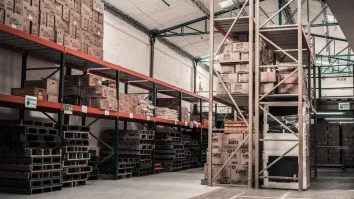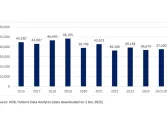HK industrial leasing slows amidst Chinese economic downturn
Soft demand from Mainland China and high capital expenditure in Hong Kong equals drop in leasing volume.
The Hong Kong industrial leasing market witnessed a decline in 2023, with leasing volumes decreasing from 6.3 million square feet in 2022 to just 2.9 million square feet last year.
Marcos Chan, Head of Research at CBRE Hong Kong, attributed this downturn to several key factors, including the slow growth in the Chinese economy and high capital expenditures in Hong Kong.
Chan explained, "The major problem lies with the slow growth in the Chinese economy, which has resulted in softer demand from Mainland China."
He said that this reduced demand from the mainland significantly impacts Hong Kong's leasing activities, as the region is closely tied to the Chinese economy. Additionally, Chan pointed out that the high capital expenditure in Hong Kong has led to occupiers preferring to stay in their current locations, further dampening the leasing market.
Another contributing factor to the weakened industrial leasing sentiment is the reduced level of available space in the market. "The leasing activity is cost-constrained by the level of available space," Chan added, highlighting the impact of limited space on new leasing or relocation activities.
Meanwhile, the market has seen increased activity from electric vehicle (EV) dealers and Information & Technology (I&T) firms.
"Leading EV brands, including Tesla and BYD, have leased over 600,000 square feet of space in Hong Kong's industrial property market," Chan stated.
This trend extends to retail shops as new EV brands establish showrooms in Hong Kong, driving demand for both industrial and retail landlords. Chan predicts that this trend will continue through 2024 as more EV brands from Mainland China enter the Hong Kong market.
Looking forward to 2024, Chan forecasts a relative improvement in industrial leasing demand, contingent upon the recovery of the Chinese economy.
"The Chinese government is pushing policies to recover the housing sector, which should increase import demand via Hong Kong into Mainland China," he observed, adding that geopolitical tensions might limit exports from China, resulting in a mild and soft recovery for the leasing market.



















 Advertise
Advertise




